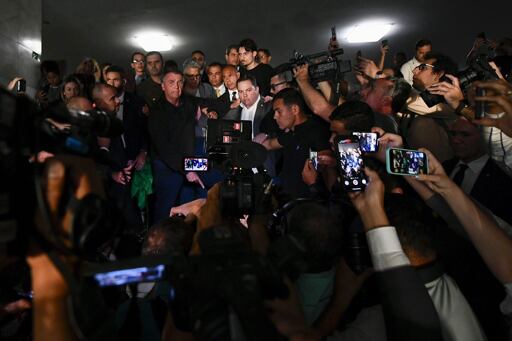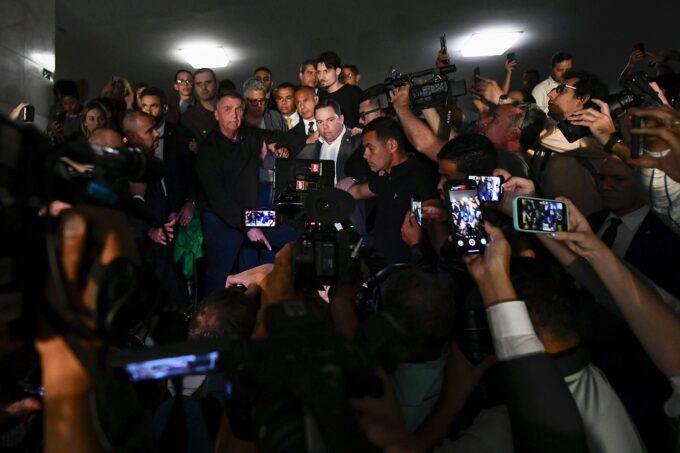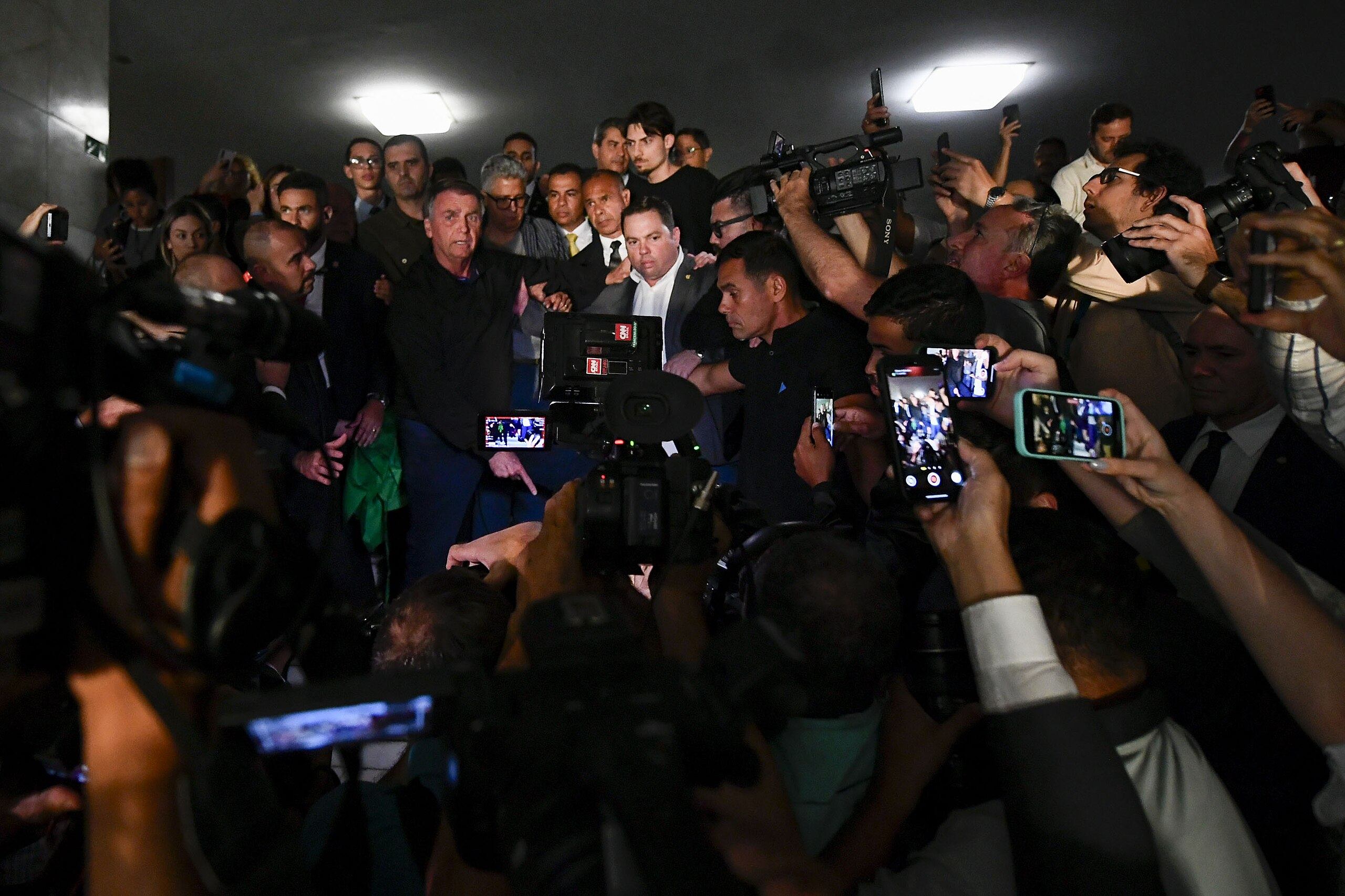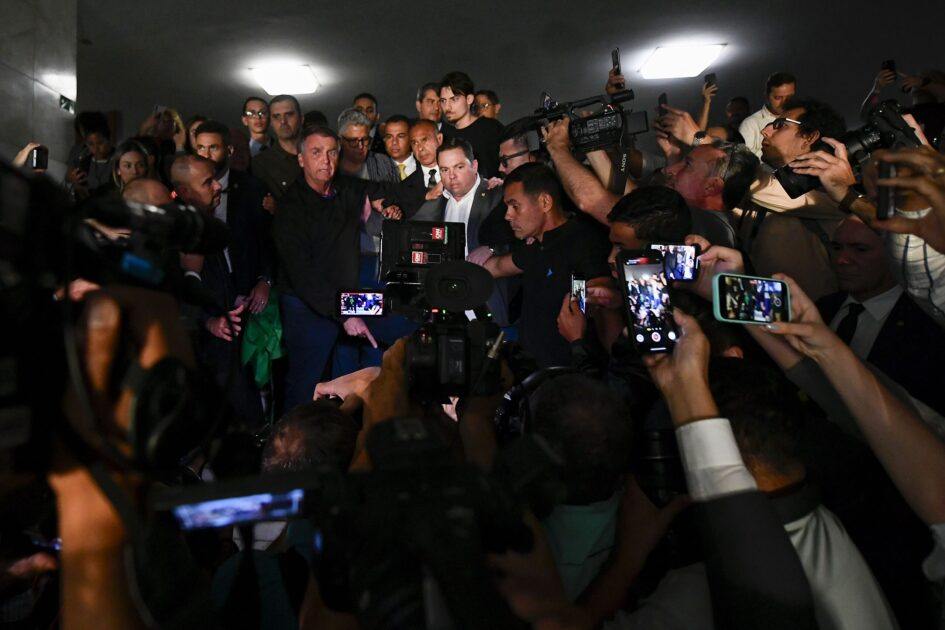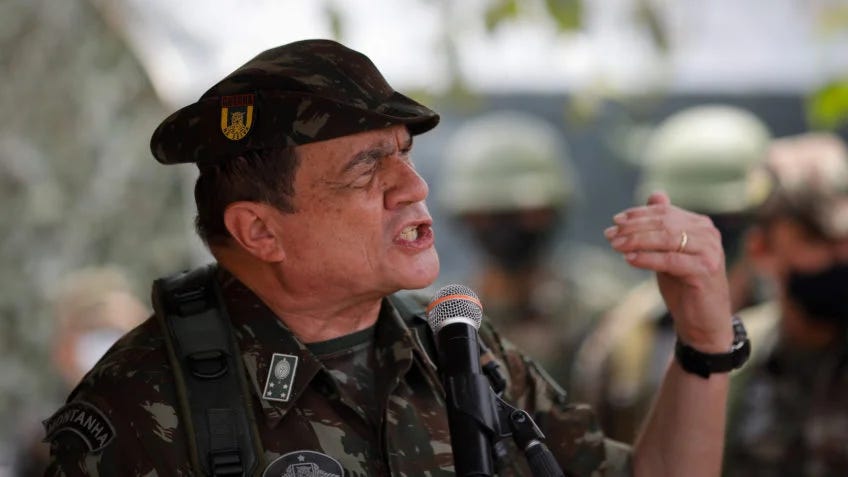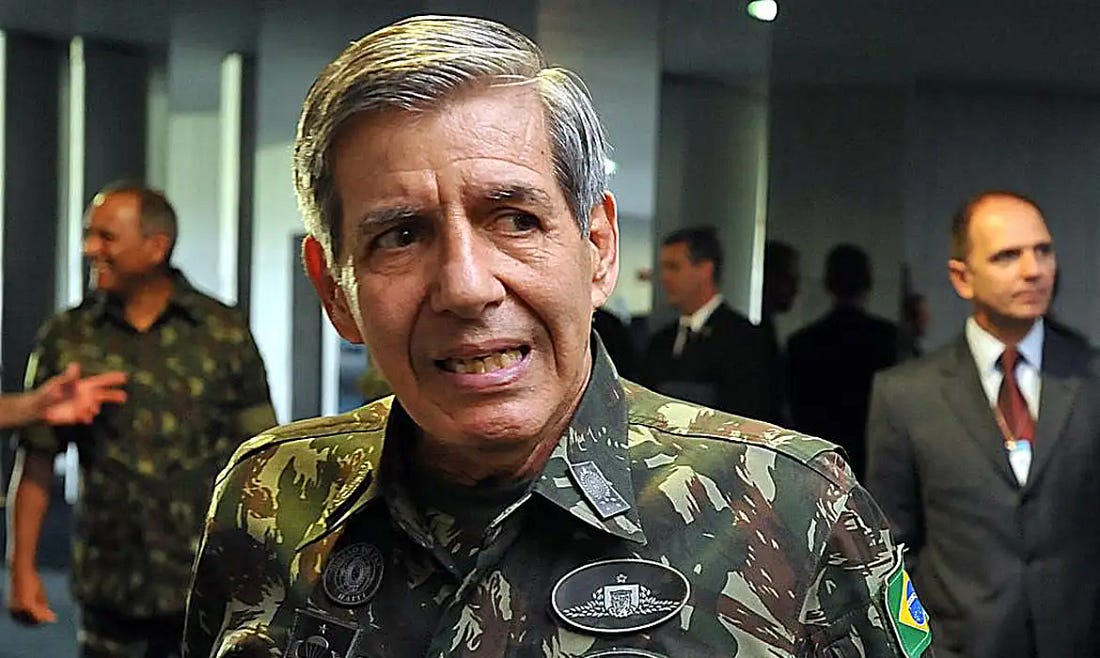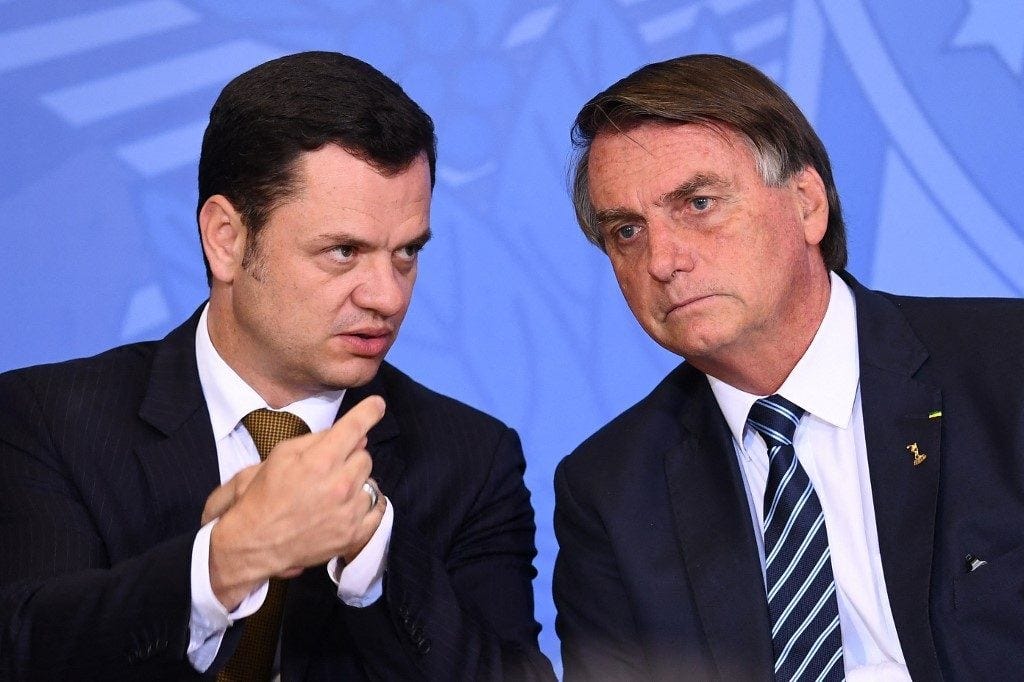Bolsonaro showing his electronic ankle monitor at the National Congress. Photograph Source: Senado Federal – CC BY-SA 4.0
On Thursday, one day earlier than planned, the first panel of the Brazilian Supreme Court* issued guilty verdicts for former President Jair Bolsonaro and 7 of his cronies for 5 crimes, including leading an armed criminal organization that attempted to install a military coup after the former president failed to win reelection in 2022.
Here is a list of the convicted co-conspirators with their sentences:
Lieutenant Mauro Cid, Bolsonaro’s former Aide-de-Camp, struck a plea bargain deal and received a sentence of 2 years of house arrest.
Alexandre Ramagem, former Chief of ABIN, Brazil’s National Intelligence Agency, received a sentence of 16 years.
Army General Paulo Sergio Nogueira, Bolsonaro’s former Defense Minister, received a sentence of 19 years.
Retired Army General Augusto Heleno, who served as Aide-de-Camp for military dictatorship hardliner Sylvio Frota in 1978 when he was transferred to a desk job and forced into early retirement after attempting to implement an auto-coup to block the transition back to civilian rule, and oversaw 16 government agencies including intelligence, received a sentence of 21 years. Many also remember Heleno as the general who, while serving under MINUSTAH Chief Juan Gabriel Valdez (Gabriel Boric’s current ambassador to the US), ran UN military operations in Haiti during the Cité Soleil massacre in 2004.
Admiral Almir Garnier Santos, former Commander in Chief of the Brazilian Navy, received a sentence of 24 years.
Anderson Torres, President Bolsonaro’s former Minister of Justice, received a sentence of 24 years.
General Walter Braga Neto, former Minister of Defense and Bolsonaro’s Vice Presidential running mate in 2022, was identified by the court as co-ringleader of the coup plot (alongside Bolsonaro). He received a sentence of 26 years.
The fact that high-ranking military officers have been convicted of attempting to install a military coup is a historic first in Brazil, which has suffered from multiple military coups and coup attempts since November 3, 1891, when Field Marshal Deodoro da Fonseca enacted an auto-coup and dissolved congress. This marks the first time that any high-ranking military officer has ever received a prison sentence for participating in a coup.
Gilberto Carvalho, Brazil’s National Secretary for the Solidarity Economy, says, “The ruling makes us happy. Not because of hatred or a thirst for revenge but because it represents a defense of Brazil’s democracy. Those who lived through the military dictatorship, and saw the torture and killings of those who tried to resist it, understand what I am talking about.”
This sentiment was echoed by many in Brazil’s social movements.
“We believe that it’s a fair verdict because they attempted a coup d’état,” says Paulo Mansan, from the Landless Rural Workers Movement (MST). “Beyond that, it represents a historical rectification for the great injustice that has happened in Brazil, including all of the people who were murdered fighting against the military coup of 1964 and the dictatorship that followed. It’s symbolically important to now have army generals convicted of a coup attempt.”
What happens next?
Jair Bolsonaro and his cronies are not going to prison just yet. According to Brazilian law, the defense attorneys have a period of 5 working days from the day of the court opinion to analyze the details of the final ruling and file two types of limited appeals.
According to Brazilian law, the first type of appeal is called a motion for clarification. It can be used to reduce sentences and fines if lawyers can convince the court that there is some sort of inconsistency between the justices’ rulings and the opinion. A simple example of this would be if a mathematical error was made summing the different sentences for the 5 crimes committed.
The second type of appeal filed after Supreme Court rulings issued by either of its two working groups is called a motion for review. Among other things, this type of appeal can be used to pressure for a second ruling, issued by the full, 11-member plenary of the Supreme Court. However, since motions for review are traditionally based on dissenting opinions from at least 2 justices, and in Bolsonaro’s case, only one, Minister Luis Fux, voted for acquittal, there is little likelihood that the defense lawyers will be able to submit them.
The Supreme Court has a deadline of 60 days from receiving the appeals to respond to them and issue the terms and conditions for the arrests of the defendants. In recent high-profile cases, however, the court has acted quicker, averaging around 15 days. In any event, barring the remote possibility of the “use of violence” to keep Bolsonaro out of jail, which was threatened by the Trump administration last week, the defendants should be behind bars anywhere from within the next two weeks to two months from now.
* According to Brazilian law, the Supreme Court handles criminal procedures through its two five-member panels. This was the standard process until 2020, when an attempt was made to transfer these cases to the full 11-member plenary. The change created a significant backlog, leading the court to rule unanimously (11-0) on December 7, 2023, to return to the panel system. Contrary to claims by bad-faith actors like Glenn Greenwald, who misrepresent the panels as a miscarriage of justice, it is important to note that both of Jair Bolsonaro’s appointees voted in favor of the measure.
This first appeared on De-Linking Brazil.
The post Brazil Reacts to Bolsonaro Verdict appeared first on CounterPunch.org.
From CounterPunch.org via this RSS feed


